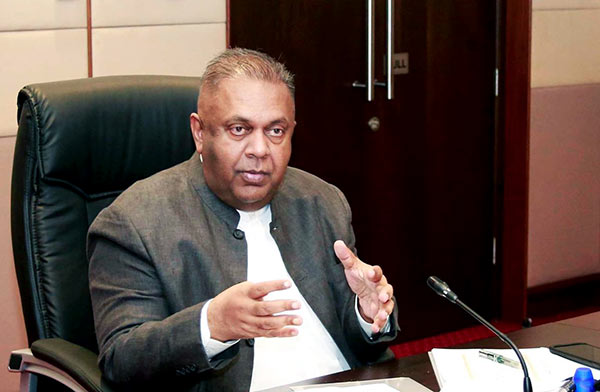‘Inland Revenue Act to rationalize investor incentive schemes’

The introduction of the Inland Revenue Act has rationalized the incentive schemes provided to investors, said Minister of Finance and Media Mangala Samaraweera.
Speaking at an event in Colombo the Minister said that these moves will help to create a level playing field, compared to previous ad-hoc investment incentives that did not always have an objective basis.
“Open ended tax holidays have been replaced by targeted capital allowances which directly reward the investment in capital. Accordingly, a company investing more than US$ 3 million in depreciable tangible assets gets a capital allowance of 100% on top of the regular depreciation schedule.”
“For investments over US$ 100 million the capital allowance is 150%. There are also benefits for investment in R&D and the IT sector, and for investments in the Northern Province.”
“Strategic sectors such as exports, tourism, and IT are taxed at a concessional corporate tax rate of 14%. These incentives are expected to be superior to previous regimes of open ended tax holidays.
The government firmly believes that private enterprise is the engine of growth and we expect private investment to reflect this. Whilst there have been recent fluctuations in economic growth, this is an expected part of the stabilization process, unfortunately exacerbated by adverse climatic conditions that have affected the rural economy in particular.
“In order to kick start economic growth, private investment must take the lead,” he said at this event hosted by the BOI.
“The opportunities are abundant and a clear strategy to support investment has been identified. I trust that you will continue to invest in Sri Lanka and encourage others to do the same. There is no better form of investment promotion than the positive experiences and feedback from existing players.”
The focus of this government since coming to power has been to improve the investment climate to encourage further expansion of the existing investments and attract new investors. In recent past, Sri Lanka has shown tendencies of an inward oriented economy dominated by non-tradable sectors.
As a part of this economic reform agenda, a number of measures are being implemented to facilitate private investment.
These reforms include the elimination of para- tariffs, opening of a Single Window for investment approvals, promotion of identified sectors for investment, the establishment of new export-processing investment zones, and digitization of public services.
“Sri Lanka’s track record in policy stability has not been perfect, but our resolve to consolidate a set of rules based, predictable and consistent policy framework remains pivotal,” the Minister said.
“One of the major objectives of our FTAs is to ensure that there are chapters on investment protection. The Singapore FTA in particular sets standard for a high quality, modern trade agreement, which signals Sri Lanka’s commitment to credible policy reforms, as well as our desire to integrate to regional trade blocks.” (SS)
(Source: Daily News)

Latest Headlines in Sri Lanka
- CID raids Kataragama Basnayake Nilame’s house in search of IGP Deshabandu March 10, 2025
- Sri Lanka’s remittance inflows continue to grow in February 2025 March 10, 2025
- IGP Deshabandu Tennakoon seeks court order to block arrest March 10, 2025
- Chamal Rajapaksa to contest Local Government Elections under SLPP March 10, 2025
- Aloe Blacc arrives in Sri Lanka to explore investment opportunities March 10, 2025


